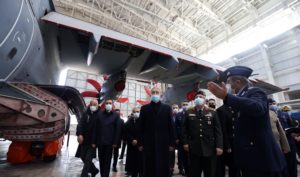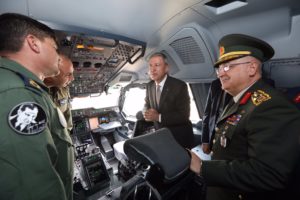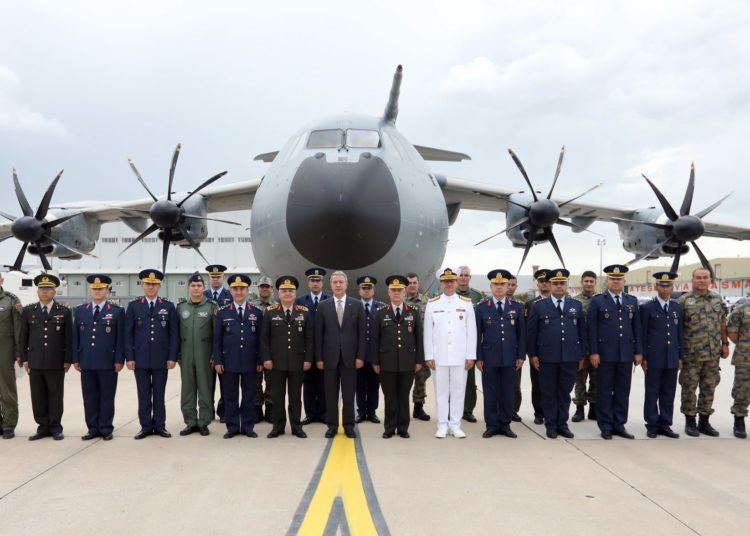Abdullah Bozkurt/Stockholm
A number of restrictive measures and sanctions imposed by NATO allies on Turkey and its quest to procure arms and defense materiel over growing divergence from alliance objectives has prompted concerns about the risk of Turkey’s expulsion from the A400M program.
Uneasiness over Turkey’s possible expulsion from the A400M program was expressed by the opposition by drawing a comparison to the removal of Turkey from the global F-35 Joint Strike Fighter consortium in which the Erdoğan government had invested $1.4 billion and expected to generate $11 billion in export revenue.
“If the same [similar to the F-35 removal] were to happen with the A400M, and they [Turkey’s partners] say one day, ‘We have expelled you,’ would the path to [international] arbitration be clear [for recouping losses]?” asked Utku Çakırözer, a lawmaker from the main opposition Republican People’s Party (CHP). His comments were made at a meeting of parliament’s Foreign Affairs Committee, which was debating the articles of a revised agreement on the A400M program on Nov. 30 before approval.
He asked why the government is not resorting to arbitration to recover the payment it made to the F-35 program and inquiring whether similar problems could emerge with respect to the A400M as well.
The A400M was designed in 2003 and manufactured by Airbus as an advanced military transport plane to boost airlift capacity of participating states and replace the Lockheed Martin C-130 and Boeing C-17. The contract was signed by Belgium, Britain, France, Germany, Luxembourg, Spain and Turkey. The Organisation for Joint Armament Co-operation (OCCAR) is the coordinator for the purchase and delivery of A400M planes.
Amendment No.1 to the A400M program that increased France’s financial commitment:
The program, which has encountered several problems since its inception and was bailed out in 2010, was revised, with several core participating states increasing their contributions to its budget. The changes were submitted to the Turkish Parliament for debate and approval as the legislative branch has the authority to approve international treaties on behalf of Turkey.
Turkey is not a member of OCCAR but a participant in the A400M program in the design, manufacturing and logistical support phases. Many parts of the A400M were made in Turkey by the state-owned Turkish Aerospace Industries (TUSAŞ) and its subcontractor Selex.
Turkey has a 7 percent share in the A400M program, and TUSAŞ manufactures 405 parts for the aircraft. Some of the parts produced in Turkey includes the forward and rear center fuselage, tail cone, flaps, speed brakes, doors, lighting systems, waste and clean water systems, and wiring. The parts are exported to facilities in Germany and the UK before final assembly in Spain. Turkey also has two maintenance locations to support repair and overhaul jobs for A400M planes.

Turkey has accepted delivery of nine A400M planes out of the 10 it ordered, with the last one expected to arrive in March 2022. It has so far generated more than $500 million in revenue from the sale of parts manufactured for the aircraft and is expected to earn nearly a billion dollars once the order for the total number of 186 A400M is fulfilled, according to Abdurrahman Şeref Can, head of the aircraft department at the Presidency of the Defense Industry (SSM), who briefed the lawmakers.
Turkey paid around 100 million euros for each aircraft it has received, and the program has produced 118 airplanes so far, said Deputy Foreign Minister Yavuz Selim Kıran, stressing that Turkey received a discount because it is a partner in the program. Turkey’s contribution to the program budget is 1.3 billion euros, amounting to a 5.56 percent budget share. Although Germany, France and Belgium have all increased their contributions to the program’s budget, Turkey’s has remained the same.
Amendment No.3 to the A400m program, which increased Belgium’s financial commitment:
As for the F-35 fighter jets, Kıran said technical talks with the US government were underway for Turkey to recoup the investment it made to the program and that legal experts were looking at all options including taking the US to international arbitration if necessary. The first round of talks with a US delegation was held in Ankara on October 27, 2021 and the second will take place in January 2022.
Turkey has come under increased pressure from its allies, especially the US, Canada and Germany, which announced restrictions and sanctions against Turkey to varying degrees because of Turkey’s closeness to Russia, NATO’s arch enemy, and the Erdoğan government’s use of arms in cross-border conflict zones.

The US designated the SSB as a sanctioned entity in December 2020. The sanctions prohibit granting loans, credits and US export licenses and authorizations for any goods or technology transferred to the SSB as well as loans or credits from US financial institutions totaling more than $10 million in any 12-month period. The US government would also oppose any third-party engagement with the SSB and try to block any loan that is likely to be extended to the SSB by international financial institutions.
In the meantime, Canada also barred the export of critical parts for armed drone production in Turkey, and Germany stopped providing engines for Turkey’s domestically manufactured artillery and tanks. In November 2021 Turkish Defense Minister Hulusi Akar revealed that allies had also imposed an embargo on imports of dual use goods for civilian needs on fears they may be used for military purposes.












